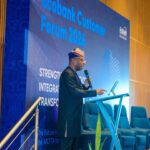By Grace Alegba
A University don, Prof. Gloria Chukwuedebe, has called for the collaboration of government, academia and industries towards evolving an implementable engineering curricular, tailored towards Nigeria’s peculiar needs for rapid growth and industrialisation.
Chukwuedebe, who is the Dean, School of Computing and Information technology, Federal University of Technology Owerri, (FUTO) made the call on Thursday at an e-symposium to commemorate 2021 World Engineering Day.
The programme was organised by the Nigerian Institute of Electrical and Electronic Engineers (NIEEE) tagged “Reforming Electrical Engineering Education’’.
She said collaboration towards the right skills for manufacturing was important for academic researches to proffer actual practical solutions to societal problems.
“We need to work together industry, government and academia,’’ she said.
She lamented that Nigeria had become a dumping ground for substandard products and technology because the needed synergy to enforce standards in the nation was missing.
Chukwudebe added that the collaboration was important for Nigeria to excel in innovation, research and development and “to achieve the SDGs and become a self-sufficient nation’’.
The don said that manufacturing would become easier when government’s funding for research is increased and for industries to adapt and perfect the works of researchers.
While giving a detailed history of the evolution of engineering from the first generation to the currently debated 5G technology, she said engineers were working silently in various sectors towards transforming lives globally.
She said that engineers were hardly commended for their achievements, but their errors usually exposed when there are accidents, and commended UNESCO for setting March 4 as a date to celebrate engineers globally.
Chukwuedebe, a fellow of the Nigerian Society of Engineers commended new initiatives introduced by COREN to change the narrative for Nigeria not to be left behind.
Also, Prof. Olasebikan Fakolujo, Dean, Faculty of Technology, University of Ibadan said that in 2015 over 250,000 graduates relied on formal jobs which worsened unemployment in Nigeria.
Fakolujo said that engineers stepped in and began to create jobs, but changed the narrative for a while as the problem resurfaced in 2018 with unemployment worsening because the engineers slacked.
“The graduate engineer should be innovative to create jobs,’’ he said.
He said engineering education fared well in early years after independence because teachers taught with adequate “practical background and industry knowledge “.
He said that the trend had changed with lecturers teaching with outdated notes that did not meet up with current electrical and electronic training requirements hence, the curriculum gap.
He appealed to industries to enforce standards and promote local content, and should not use the industrial training period as a time to send interns on errands instead of equipping them with practical knowledge.
He called for reforms in all aspects which included government funding, the trainer’s attitude and approach, trainee’s orientation and industries support to achieve results.
Prof. Joseph Odigure, Registrar, Council for the Regulation of Engineering in Nigeria (COREN) said Nigerian graduates do not fit into the 21st century engineering community because the technological space was evolving.
Odigure represented by Prof. Eyitayo Agfolabi said that Nigerian students cannot cope after learning outdated methods, hence the introduction of Outcome Based Education (OBE) by COREN which brings students and industries together.
He said the initiative sought to close the gap between theoretical and practical knowledge where attention must shift from the traditional method of focus on lecturers to students ability and understanding.
He said engineering curriculum approaches in Nigeria were not outcome based hence the unemployability of most graduate engineers.
Odigure said that there was need to put focus on Outcome Based Education (OBE) to be able to fit in, adding that, curriculum must be reformed to the OBE model instead of emphasis on grades.
“OBE approach is a must,’’ he said.
Mr Adeyemi Kings, National Chairman, Nigerian Institute of Electrical and Electronic Engineers (NIEEE), in his opening remarks said that engineering entrepreneurship was important for wealth creation to tackle the economic challenges of COVID-19.
“There is an urgent need to strengthen engineering design education which is significant component of undergraduate engineering education. This is critical for long term development and ripple into economic development,’’ he said.
Mrs Abosede Adewole joined other speakers to call for more teachers as the few lectures were inadequate to execute practical sessions to a logical conclusion with students.
Adewole also called for action against marginalisation of women in Nigeria whose passion for engineering has waned from being turned down in various engineering fields based on gender and not competence.
Other speakers also lamented the reluctance of the academia and industries to adopt OBE and collaboration and stressed the need for them to embrace change and partnership for progress.
(Edited by Emmanuel Okara)
local_offer
Posted in GENERAL NEWS
event_noteMarch 4, 2021account_boxGRACE.ALEGBA










